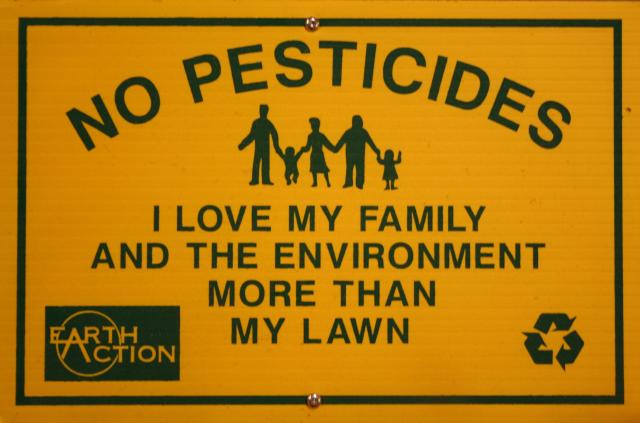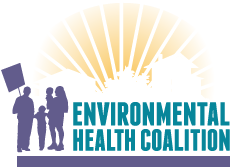Although we use pesticides to get rid of unwelcome home guests, they are toxic to both the intruders and the people who live there, especially children. The use of pesticides indoors is extremely risky considering ventilation in most homes is relatively poor and people spend many hours a day at home, breathing these chemicals in long after they've been used.

Pesticides are not the only way to control pests in your home. Follow the toxic-free pest control method and protect your family without the use of pesticides!
1. Use preventive methods first: Start by sealing food in tight-fitting containers, not letting dirty dishes pile up, taking the trash out regularly, groom pets and routinely sweep and vacuum.
2. Monitor your pest population to discover when, why and where they come from: Look in drawers, along walls and under the kitchen sink for their droppings or trails.
3. When preventive measures are not providing enough control, use the least toxic methods.
Depending on which pest is giving you a problem, there are several different options.
Ants: Diatomaceous earth (look for the garden grade, not the pool grade) is a dehydrating powder that kills insects on contact. Sprinkle it in carpets or around doors and windows.
Fleas: Effective control of fleas requires an organized plan with attention to fleas in the carpet, on the animal and in the yard. Soap and water traps for flea control in the house are extremely effective. In recent years, new products are available over the counter or from a veterinarian for use directly on pets such as Frontline Top Spot, Revolution or Advantage. Experience shows animals tolerate these well, but they aren't entirely non-toxic so keep them away from small children. For outdoors, an insecticidal soap product can be used to discourage flea growth in your yard.
Cockroaches: Boric acid is a moderately toxic, noncorrosive powder found in many commercial brands (look for 99% boric acid) carried in hardware stores and garden centers. Sprinkle it in cracks and crevices and behind furniture. IT IS TOXIC BY MOUTH: do not put it where children and pets can get to it.
Termites: Termite exterminators currently rely on Vikane (sulfuryl fluoride) for whole house fumigation and Dursban (chlorpyrifos) for spot treatment – both of which are toxic to the nervous system. EHC suggests removal or repair of infested wood, whole house heat, cold treatment and spot treatment with electricity, limonene or other citrus derivatives. Call EHC for more information on termite control.
Garden Pests (insect and weeds): Adhesive products and traps with sticky barriers are good for catching unwanted garden insects. Soap and water, inorganic dusts and oil spray are also good solutions to eliminate most insects, fungi and weeds.
Pesticides should be a last resort for pest management. Please contact EHC for more specific information on controlling unwanted guests without sacrificing the health of your family members and your home.

